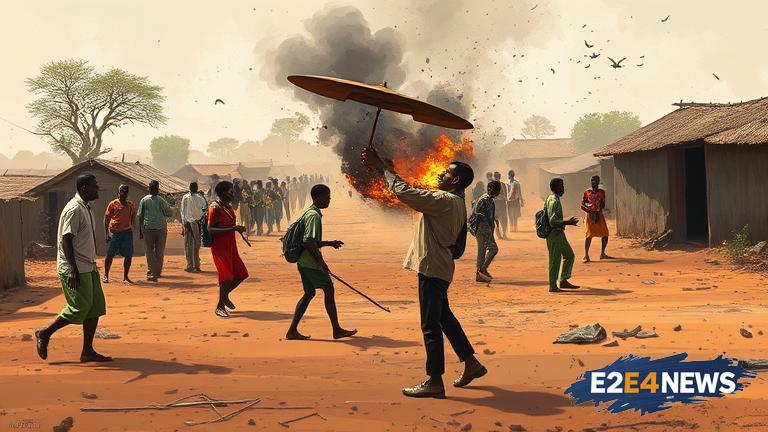South Sudan, the world’s youngest nation, has been plagued by a recent surge in ethnic clashes, resulting in the deaths of at least 1000 people. The violence, which has been ongoing for several weeks, has displaced thousands of civilians and raised concerns about the country’s fragile peace process. The clashes, which have been primarily between the Dinka and Nuer ethnic groups, have been fueled by long-standing tensions and competition for resources. The conflict has also been exacerbated by the country’s struggling economy and lack of infrastructure. Despite efforts by the government to quell the violence, the situation remains volatile, with reports of continued fighting and civilian casualties. The international community has condemned the violence and called for an immediate ceasefire. The United Nations has also expressed concern about the humanitarian situation, with thousands of people in need of aid. The clashes have also raised concerns about the potential for further instability in the region, with neighboring countries watching the situation closely. The South Sudanese government has faced criticism for its handling of the crisis, with some accusing it of not doing enough to prevent the violence. The opposition has also called for the government to take responsibility for the crisis and to work towards a peaceful resolution. The conflict has also had a significant impact on the country’s economy, with trade and commerce severely disrupted. The humanitarian situation is also dire, with reports of food and water shortages, as well as a lack of access to medical care. The international community has pledged to provide aid to those affected by the conflict, but the situation remains challenging. The clashes have also highlighted the need for a lasting peace agreement in South Sudan, with the country’s leaders facing pressure to find a solution to the crisis. The African Union has also called for an emergency meeting to discuss the situation and to find a way to bring an end to the violence. The situation in South Sudan remains fluid, with the potential for further violence and instability. The international community will be watching the situation closely, with hopes that a peaceful resolution can be found. The people of South Sudan deserve peace and stability, and it is the responsibility of the country’s leaders to ensure that this is achieved. The conflict has also raised questions about the role of the international community in preventing and resolving conflicts in Africa. The situation in South Sudan is a reminder that more needs to be done to prevent conflicts and to support countries in their efforts to build peace and stability.
